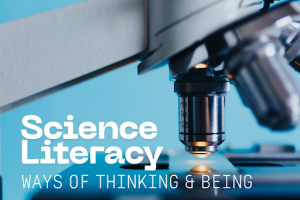
By Rowan Dunbar, C2ST Intern, University of Illinois Chicago
This past summer, I found myself teaching a classroom full of fourth through eighth graders. When I asked them, “What do engineers do?” Their answers were spot on: “Engineers make things to help people.” This answer is not too different from the one I heard throughout my K-12 education; however, as I get further into my education as a biomedical engineer, I find myself circling back to this definition with more and more questions. Do we help folks who need it? How do we help them? These questions are even more critical in the medical field where people’s health and wellbeing are on the line. This is where the concepts of Verification and Validation (V&V) come in. Every medical device goes through a rigorous process involving regulatory oversight, review, and iteration before it gets released; this process is ongoing even after a product is released!
Continue reading “Beyond Validation: Are Medical Devices Meeting Our Needs?”

By Hayden Nelson, C2ST Intern, University of Chicago
Have you ever wondered why your teeth aren’t perfectly white? Or why coffee, tea, and red wine seem to leave their mark? The answer comes down to chemistry. Every sip and snack you take sparks tiny chemical reactions inside your mouth. That morning coffee? Its dark pigment slips into the tiny grooves in the surface of your teeth. The glass of red wine at dinner? Same story. Our teeth might look simple, but they’re surprisingly complex structures that react to what we eat and drink every day. Despite their smooth look, our teeth are actually made up of layers of tightly packed minerals with tiny pores that absorb pigments from the foods and drinks we love. Understanding the chemistry behind your teeth and their stains helps explain why some smiles stay bright while others fade, and how everyday choices can make a microscopic difference.
Continue reading “The Chemistry of Your Smile: What Coffee, Wine, and Foods Are Really Doing to Your Teeth”

By Hayden Nelson, C2ST Intern, University of Chicago
Plastic is everywhere. It’s in our packaging, our clothes, our water, and even our bloodstreams. In many ways, we’ve turned Earth into a giant tupperware container. The result? Millions of tons of plastic waste flow into the ocean each year, breaking down into microscopic confetti that fish mistake for food. Yet, beneath those same waters lies an unexpected ally. Seaweed, the slimy green (and sometimes brown) plant we love to avoid at the beach, could be the ocean’s quiet answer to plastic pollution.
Continue reading “The Slimy Solution to Plastic Pollution”
By Ella Heckman, C2ST Intern, Loyola University
As our world is constantly changing with new technology, ideas, and discoveries, it can be intimidating to keep track of all of this new information, let alone understand and engage with it critically. If you’re anything like me, it can be easy to get overwhelmed by the amount of information out there and mentally check out. The ability to understand and engage with science is essential for engaging with politics and policy, as well as with each other in our collective future. Let’s talk about science literacy in a way that doesn’t make us ashamed of what we don’t know and understand, and instead talk about it in terms of what we do know and how much more we can learn and do when we are scientifically literate. Once we learn what science literacy is we can go on to ask how we can become more curious, more rigorous, and more present people in our world.
Continue reading “Science Literacy: Ways of Thinking & Being”
By Riley Henry, C2ST Intern, Loyola University
Have you ever thought about how your gender might make you feel good? Gender can help bring out joy and happiness in ways you might not realize! I interviewed Dr. Will Beischel (they/them), an Assistant Professor of Social Psychology at Loyola University Chicago. They research and teach about gender and sexuality, especially the positive aspects of LGBTQ+ life and how people’s identities are shaped developmentally by their social experiences. Let’s jump in and learn more about these positive gender experiences!
Continue reading ““Like Eating Chocolate”: A Discussion on Positive Gender Experiences with Dr. Will Beischel”





